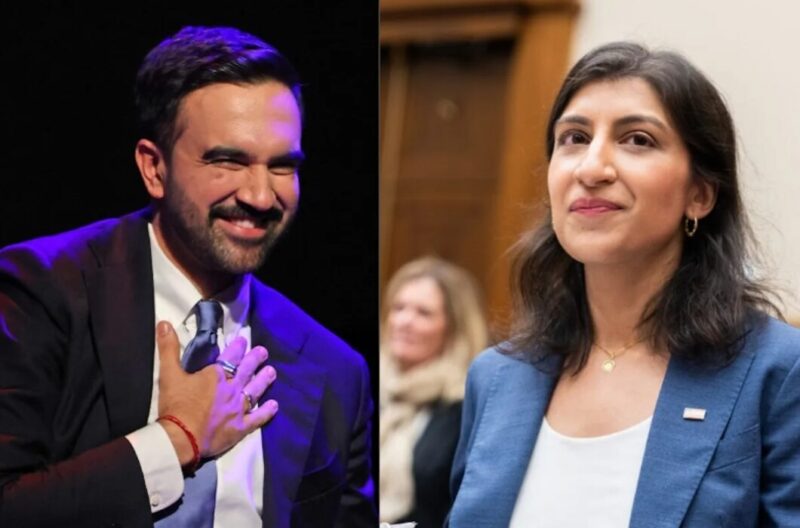Former Biden FTC To Co-Chair Transition Team
The 2025 New York City mayoral election may be officially over, but the real story is just beginning — and it’s unfolding with the intensity of a five-alarm fire. While confetti settles for Zohran Mamdani’s historic and ideologically seismic victory, those with means, foresight, and functioning calculators are quietly, or not-so-quietly, planning their escape.
Productive residents — the kind who pay the city’s taxes, run its small businesses, and employ its workforce — are packing up, looking westward to Texas, south to Florida, or in a pinch, even north to Buffalo. Anywhere but here. Because Mamdani’s victory isn’t just a change in leadership. It’s a revolution by ballot box, ushering in the country’s most high-profile socialist mayor in its most economically complex city.
And Mamdani isn’t wasting any time making that shift unmistakably clear.
Barely 48 hours into the post-election glow, he made a pointed announcement: former FTC Chair Lina Khan will co-chair his transition team. That’s right — that Lina Khan, the same architect of Biden-era regulatory overreach, the progressive crusader who sent shudders through Silicon Valley boardrooms, and the bane of Big Tech consolidation. In one stroke, Mamdani signaled that he intends to build an administration not of city managers, but of ideologues and reformers — with Khan at the vanguard.
Her selection is no sideshow. It’s a shot across the bow of every entrenched corporate and civic interest in New York. Khan’s record at the FTC was one of relentless pressure — pushing the limits of antitrust authority, inserting the federal government into private-sector mechanisms with unprecedented reach, and drawing ire from not only conservatives but also moderate Democrats. Yet here she is, stepping off the national stage into the crucible of New York City governance.
Her statement? Measured but unmistakable: “It’s time to build a city that working people can actually afford.” A noble idea, on its face. But the tools Khan and Mamdani favor — heavy regulation, punitive tax schemes, redistributionist policies — are the very reasons cities become unaffordable in the first place.
And here’s the larger irony: in a city already staggering under the weight of outmigration, economic stagnation, and safety concerns, the new administration may well be pouring gasoline on a smoldering problem. What kind of exodus will unfold once the real teeth of Mamdani’s agenda bite into Wall Street, Midtown, and the city’s already beleaguered outer boroughs?
If Khan is the moderate among Mamdani’s incoming circle, as some insiders now whisper, then New Yorkers are in for far more than they bargained for. The Overton Window in New York hasn’t merely shifted — it’s been launched into orbit, spiraling somewhere beyond the map’s edge where policy meets fantasy.
Mamdani’s challenge, of course, will be governing a city that still requires functional services, balanced budgets, and cooperation from the very sectors his base wants to punish. And that challenge begins now, with a transition team that’s less about building bridges and more about burning old foundations.


